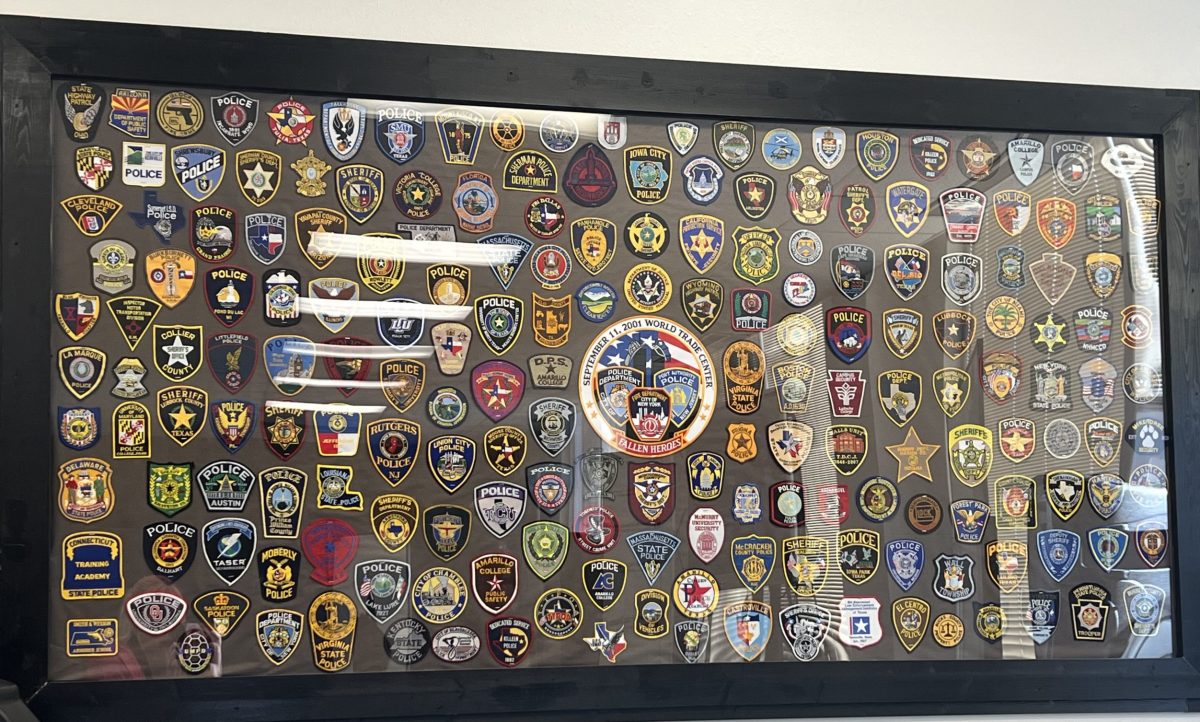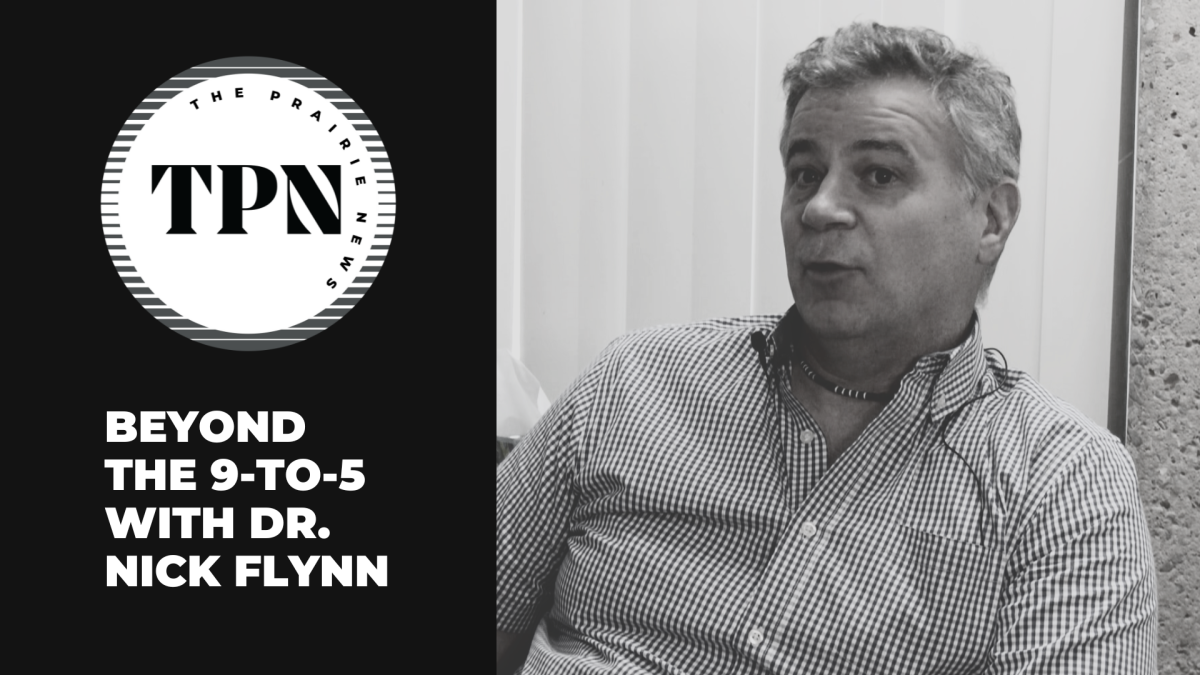
“This particular Sunday we were going to church and I thought, ‘you know what, I’m just going to leave my phone at home. I’m not going to get the call,’” Camille expressed.
Yet, as Camille and her husband Evan were about to exit the door, the impending call that they had been hoping for nearly six months now was about to be answered.
“They told us we needed to get there right away,” Evan Bingham said, thinking back. “I was in a major rush to make sure everything got taken care of, because we were expected to have to stay down there for at least three months.”
Camille and Evan Bingham were headed down to Baylor University Medical Center in Dallas for an operation that would eternally and internally change Camille’s life optimistically for the better.
Camille, at the age of 14, was diagnosed with autoimmune hepatitis type 2. She had begun to develop several symptoms, which included but was not limited to, yellowing of the skin and pupils, fatigue and abdominal discomfort.
“At first, I thought it was just something that you take medicine for and get over and you’re fine,” Camille said. “Kind of like a cold or the flu.”
However, Camille quickly realized she had developed a sickness that was much worse when she underwent emergency surgery for her spleen.
“About three months after I was diagnosed with the disease, they had to remove my spleen, which had enlarged to the size of a football,” she said. “I still didn’t fully comprehend the magnitude of this disease. At the time, I was just scared about the surgery, because I had never had surgery before.”
Autoimmune hepatitis is a hereditary disease, although there were no known kin with any type of auto immune disease in Camille’s family.
According to the Web site of National Digestive Diseases Information Clearinghouse, autoimmune hepatitis is a disease in which the body’s immune system attacks liver cells. It is typically chronic, meaning it can last for years, and can lead to cirrhosis — scarring and hardening — of the liver. Eventually, liver failure can result.
Although the most common form of autoimmune hepatitis is type 1, Camille was diagnosed with type 2 autoimmune hepatitis, which is far less common.
“One in a million has the type 2 form of the disease,” Camille said. “Since it is so rare, they don’t know exactly why I got the type 2 instead of the more common type 1.”
Although Camille admits that she doesn’t always understand all the medical terminology surrounding her disease, she does credit her restricted medical knowledge to her older sister, Dr. Amber Price.
“If I needed someone to clarify what the doctors had just told me, I would call Amber and she would tell me everything I needed to know,” she said. “If she didn’t know, she would take time out to research everything that was happening.”
Dr. Amber Price is a fourth year Resident at Oklahoma University Health Sciences Center. She acknowledges that she didn’t always know everything about what Camille was going through.
“Because it’s so rare, it is not something that we are taught specifically on so much in medical school,” Dr. Price admits. “It never really hit me for awhile how serious her medical problems were because Camille acted so strong.”
Although Camille’s disease didn’t peak until she was a little older, she still remembers how the side-effects of her medication affected her inner spirit and outer appearance throughout high school- which included weight gain, puffiness of the face, and mood swings.
“I felt very self conscience and very aware of how people looked at me and thought of me,” she said. “The side-effects of the medicine were what always made me different from the other people my age.”
Nevertheless, Camille and her husband Evan began dating their junior year of high school.
“We had a lot of things in common,” Evan said. “We both liked sports and we were both very competitive. I eventually knew about her sickness, but she didn’t let it bother her, so I didn’t let it bother me.”
The two graduated from River Road High School in 2002, and continued their education at West Texas A&M University shortly after. They eventually married July 24, 2004; however, six months later, Camille started having abnormal and more serious complications.
“Senior year of college was when I started getting really sick,” Camille expressed. “I had been under the impression that I was getting better and would grow out of this disease. I began to start itching extremely bad, and my stomach began to fill up with fluid.”
Camille was in the beginning stages of liver failure.
“It meant her liver had become like someone else’s who had drank their whole life,” Dr. Price said. “The liver can take a lot of abuse, but her liver was so bad that it had progressed quicker towards liver failure.”
“I couldn’t even walk to the mailbox,” Camille exclaimed. “That was a big defining moment. I always thought that ‘yeah I was sick, but I can still walk down the street. Anybody can walk down the street.’ Honestly, I was pretty pissed off that it had gotten this bad.”
Camille recalls being in the doctor’s office after they had run several tests to see if she would need to have a liver transplant.
“I remember the doctor walking in and me repeatedly asking if I was going to have to have a transplant,” she said timidly. “The doctor began to cry, and told me that I was going to have to have the transplant. But at that point, I had been feeling so sick and miserable that it was kind of a relief that we were going to do something about it and that I was going to get better.”
Camille was put on the national waiting list for liver transplants at the young age of 21, and a year after she had become a bride.
“At that point, I was under the mind set of ‘okay let’s do this, let’s get on the list, let’s get one, let’s get better,’” she said. “I knew God was going to provide for me, and I knew he had a greater plan for my life.”
Camille and Evan had received two phone calls before the final one to let them know that they were on waiting, and if the people in front didn’t take the liver, then it would be Camille’s.
Although the final call never came in those instances, they knew they were getting close.
“Because of the two previous times, I did feel I was a little more ready and prepared when the time actually came,” Evan said.
Six months after being put on the waiting list, Camille and Evan were finally on their way to Dallas by helicopter and on their way to a new life.
“I was pretty excited,” Camille said. “I knew that God had gotten me that far and that he was going to take care of me the rest of the way. I knew a lot of people were praying for me, so I had an excitement and a peace.”
Camille received her liver transplant on January 28, 2006 at the age of 21. Her donor was a 56-year-old Texas native who, in doctor’s words, had a “ticking time-bomb” in his chest.
“The doctors said he could have gone at a younger age,” Camille said.
Camille successfully underwent a liver transplant and is now five years away from the day that saved her life. She has also not had any flare-ups for two years.
“Recovery was a very difficult process, but I can’t believe that it has been that long; it still seems like yesterday,” she said. “However, every year on that milestone I do feel for the family, because this is the anniversary of the day they lost their loved one and that is really hard too.”
Camille and Evan eventually went back to finish their senior year in college, and graduated from WTAMU in the spring of 2007.
Camille gives credit to her faith and her undoubted support from family and friends to her recovery.
“I’m very thankful to have the family and support that I have,” she said. “But I want others in similar situations that don’t have that support to know that no matter who you are, or what you are going through or what you have done, you can always turn to God and he will be your comforter, your healer, and your supporter.”
Camille is often regarded by her loved ones as being “too strong for her own good.” However, she understands that being strong does not always mean you can never show weakness.
“I also want others in similar situations to know that sometimes it’s okay to get down; it’s okay to break down and cry; it’s okay to feel what you’re feeling,” she expressed. “But the best thing for you to do is to just get up and try to live your life to the fullest and never give up.”















